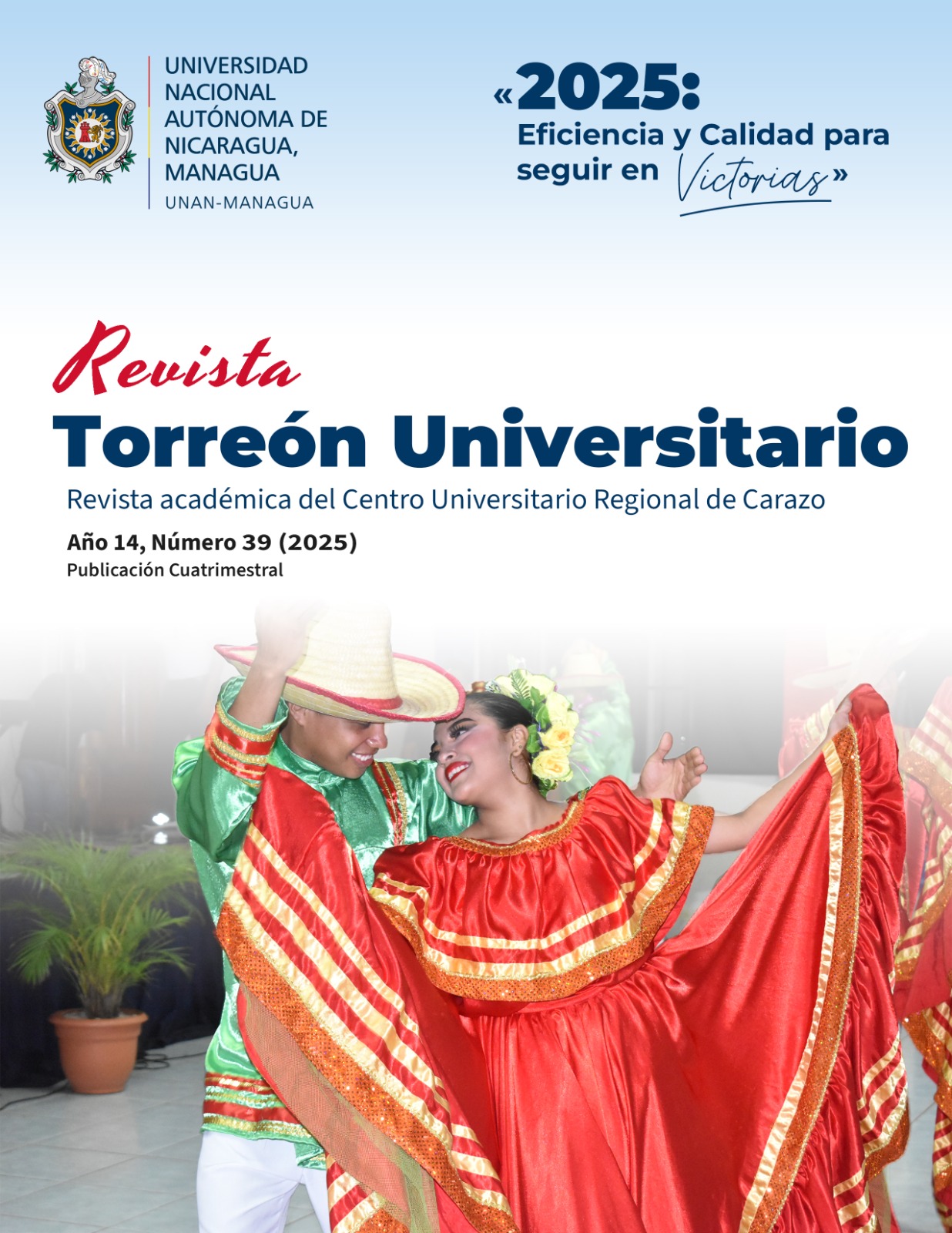Proposal of a didactic strategy for the development of communicative competence based on SWOT analysis.
DOI:
https://doi.org/10.5377/rtu.v14i39.20049Keywords:
SWOT analysis, curriculum, communicative competence, strategy, teachin-learningAbstract
The research was carried out using the SWOT analysis methodology to observe and analyze the application of the Language and Literature curriculum in Secondary Education at the Maestro Gabriel Institute, located in the department of Managua, Nicaragua. The study was realized in the classroom, where teachers, students and parents participate, and was based on the management of the language and literature curriculum, its relationship with the National Plan to Fight Poverty (PNLCP), communicative competence in Language and Literature and strategies for improving the Language and Literature curriculum. The vision and mission of the Ministry of Education (MINED) was presented and then the data was analyzed according to the SWOT methodology. Subsequently, strategic objectives were presented with their respective strategies and goals for improving the curriculum based on the analysis carried out previously. Finally, a strategic support plan was presented, which contains goals and actions that help improve the teaching-learning process.
Downloads
References
Colmenares, A. (2012). Investigación-acción participativa : una metodología integradora del conocimiento y la acción. Obtenido de Respositorio MINEDU: http://repositorio.minedu.gob.pe/handle/20.500.12799/1833
Española, R. A. (2022). Diccionario de la Lengua Española (DLE). Obtenido de https://dle.rae.es/
García, T. y. (s.f.). El FODA: Una ténica para el análisis de problemas en el contexto de la planeación en las organizaciones. Obtenido de https://www.uv.mx/iiesca/files/2013/01/foda1999-2000.pdf
Hamui, A. y. (2013). La técnica de grupos focales. Investigación en Educación Médica, 2(5), 55-60.
Martínez, M. (2004). La investigación acción participativa . Obtenido de Introducción a la psicología comunitaria: https://openaccess.uoc.edu/bitstream/10609/78705/1/Psicolog%C3%ADa%20comunitaria%20y%20bienestar%20social_M%C3%B3dulo%205_La%20investigaci%C3%B3n%20acci%C3%B3n%20participativa.pdf
Quecedo, R. y. (2002). Introducción a la metodología de investigación cualitativa. Revista de Psicodidáctica(14), 5-39. Obtenido de https://www.redalyc.org/pdf/175/17501402.pdf
Ramírez, J. (s.f.). Procedimiento para la elaboración de un análisis FODA como una herramienta de planeación estratégica en las empresas . Obtenido de https://www.uv.mx/iiesca/files/2012/12/herramienta2009-2.pdf
Sagredo, A. y. (2018). El Paradigma socio crítico y su contribución al Prácticum en la formación inicial docente . Obtenido de Universidad de Concepción : http://innovare.udec.cl/wp-content/uploads/2018/08/Art.-5-tomo-4.pdf
Sarli, R., & González, S. y. (2015). Análisis FODA . Obtenido de Una herramienta necesaria : https://bdigital.uncuyo.edu.ar/objetos_digitales/7320/sarlirfo-912015.pdf
Zapata, F. y. (2016). La investigación acción participativa: Guía conceptual y metodológica del Instituto de Montaña. Obtenido de Instituto de Montaña: https://mountain.pe/recursos/attachments/article/168/Investigacion-Accion-Participativa-IAP-Zapata-y-Rondan.pdf
Downloads
Published
Issue
Section
License
Copyright (c) 2025 National Autonomous University of Nicaragua, Managua

This work is licensed under a Creative Commons Attribution-NonCommercial-NoDerivatives 4.0 International License.
The authors who publish in this journal agree to the following terms.
- The author or authors of the articles, essays or research grant the National Autonomous University of Nicaragua, Managua (UNAN-Managua) the editing rights (copyright) of the submitted work, therefore the University has the exclusive right to publish the article for the entire copyright period.
- These copyrights/authors authorize Torreón Universitario Magazine and the University to edit and disseminate/publish the article in said Magazine, including printed and electronic reproduction, storage, retrieval and any other type of publication, and sources of secondary information as services. of summaries and databases, they also empower it to protect the article against unauthorized use for dissemination by printed or electronic media (PDF, HTML, EPUB, XML or others).
License for use of content
The magazine uses the Creative Commons Attribution-NonCommercial-NoDerivs 4.0 International License.
Under this statement:

This journal is licensed under a Creative Commons Attribution-NonCommercial-NoDerivatives 4.0 International License. It can be copied, distributed and transmitted publicly as long as the author and source are cited (Revista Torreón Universitario), it should not be modified or used for any commercial purpose. The full license can be found at http://creativecommons.org/licenses/by-nc-nd/4.0/.



